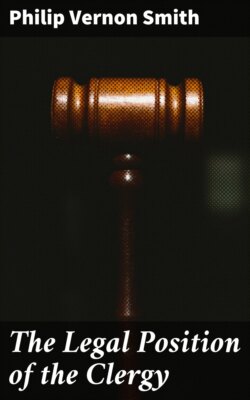Читать книгу The Legal Position of the Clergy - Philip Vernon Smith - Страница 28
На сайте Литреса книга снята с продажи.
Оглавление4. If a bishop refuses to admit a presentee on a ground specified in sect. 2 of the Act of 1898, or on account of any other unfitness or disqualification sufficient in law, not having reference to doctrine or ritual, he is to signify in writing his refusal, and the ground for it, to the patron and the presentee; and either of them may within one month thereafter require that the matter be heard by a court consisting of the archbishop of the province (or if it was the archbishop who refused to admit, the archbishop of the other province) and a judge of the Supreme Court, nominated by the Lord Chancellor. The judge is to decide all questions of law and fact, and if the judge finds that there is no fact sufficient in law to constitute unfitness or disqualification, the archbishop is to direct the admission of the presentee. But if the judge finds that such fact does exist, the archbishop is to decide whether the presentee is actually in consequence unfit to serve the benefice, and adjudge whether admission ought under the circumstances to be refused. In either case his judgment is to be final.[55] When the bishop has refused to admit a presentee, the patron cannot present him again in respect of the same vacancy.[56] If the bishop refuses to admit the presentee of a clerical patron and the refusal is upheld by the court, the patron has the same right of further presentation as if he were a lay patron.[57] If a bishop refuses to admit a presentee on the ground of doctrine or ritual, the old alternative remedies remain, either (a) of a suit of duplex querela by the presentee in the ecclesiastical court of the province, or (b) of an action of quare impedit by the patron in the High Court of Justice.[58]
